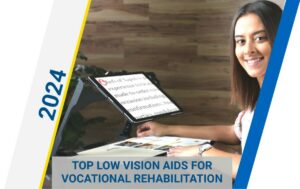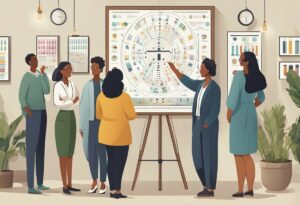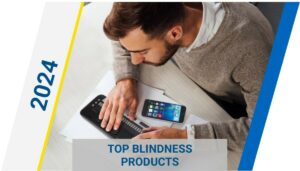Five Best Uses for Smart Home Devices for The Blind and Visually Impaired
Smart home devices have been described as being life-changing for the blind and visually impaired.
The features of these devices were not designed specifically with the blind and visually impaired in mind, but they have ended up offering countless advantages for the community.
Not sure how your smart home device can help you though? Here are five of the best uses for Smart Home Devices to serve as assistive technology for the blind and visually impaired.
- Stay up on the news
Get your smart home device to read the news to you each morning, many times for free. Newspapers such as the Los Angeles Times, Washington Post, and USA Today offer free podcasts, daily briefings, and news reports that can be prompted simply by asking “Alexa, open the Los Angeles Times,” for example.
- Set a timer
The timer feature of smart home devices are incredible for the blind and visually impaired while cooking, or during any activity where a timer comes in handy. For example, need to a set a timer to cook something for 10 minutes, simply ask “Alexa, set a timer for ten minutes.”
- Play music
Being able to ask a smart home device to play a favorite song, artist, or album and having the device broadcast it in one, simple vocal command eliminates a number of the steps that can make playing music more difficult for the blind and visually impaired.
- Maintaining a calendar
A voice-commanded digital calendar can simplify planning for the blind and visually impaired. Smart home users can ask their device what’s on their schedule today and their device will read out their day to them.
- Grocery shopping
There are a number of helpful apps for buying groceries and getting food delivered, but smart home devices such as Alexa also have their own built-in features that can make grocery shopping easier. A feature like Alexa’s Peapod allows users who are blind and visually impaired to order groceries by just saying what they need.
The Braille Institute is offering multiple free smart home device-related workshops throughout the month of January as part of the organization’s Technology Month. These hands-on workshops are great support for assistive technology for the blind and visually impaired, whether you just got a smart home device and want to know how to set it up, or if you’ve had one for a while now and want to unlock new tips and tricks.
This article was originally published by Braille Institute. To read the original article, you can visit this link – https://brailleinstitute.org/blog/technology-month/five-best-uses-for-smart-home-devices-for-the-blind-and-visually-impaired
Smart Home Experts
Our Smart Home Experts can help design the right solution to help you or a loved one remain independent by using the many features of a Smart Home. <Click here to learn more.>
About New England Low Vision and Blindness
New England Low Vision and Blindness uniquely brings hope through technology, training, and care. We are a full-service assistive technology rehabilitation training provider. We offer nearly 100% of all major electronic low vision, blindness, and software products, multiple assistive technology showrooms and a team of Vision Technology Rehabilitation Trainers to help anyone who is visually impaired.
We provide ‘patient choice’ showcasing numerous technology options from the world’s most respected suppliers, all in line with one’s individualized budgetary limits and personal, educational, or professional goals. We also provide custom training solutions and troubleshooting support.
Widely known, tested, and trusted throughout New England, our team brings 75+ years of low vision and blindness experience. Our talent, technology, and training offerings are unmatched and highly respected. We are an extremely unique and extraordinary resource for anyone suffering from vision loss in New England. We are here to help.
Through our no-obligation demonstrations – either at one of our conveniently located assistive technology showrooms or in their home, office, or school – clients experience a relaxed 2-hour free personal demonstration of almost 100% of all low vision and blindness technologies available on the market.
To learn more about how we Bring Hope to people who are blind or with low vision, contact a Technology Specialist at New England Low Vision and Blindness please call our toll-free number 888-211-6933 or email us at info@nelowvision.com.



